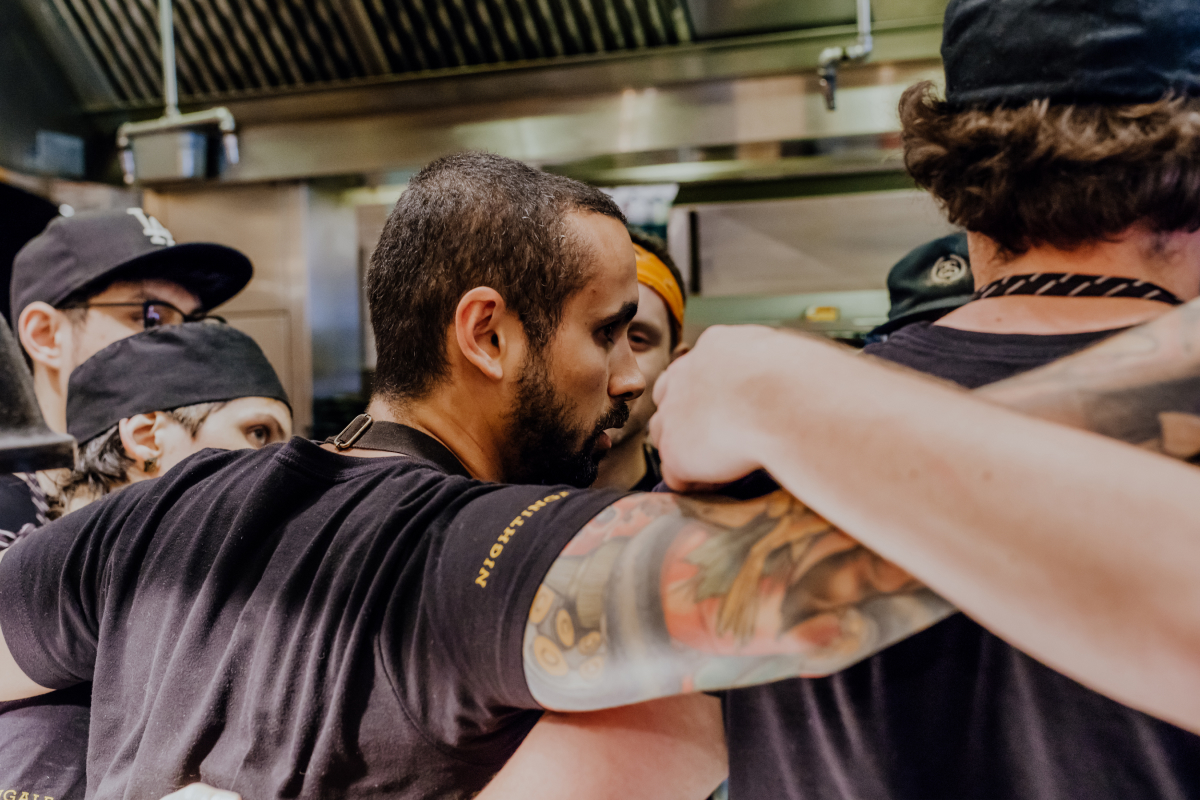OpenTable has joined forces with other industry leaders to advocate for more restaurant support by extending the CARES Act, a federal relief program that as of Thursday morning has already been exhausted. Restaurants are among the hardest hit by COVID-19, with one survey showing 70 percent could permanently close. The time to act is now. Read the letter to Congress below. #rallyforrestaurants
Dear Majority Leader McConnell, Speaker Pelosi, Minority Leader Schumer, and Minority Leader McCarthy:
The passing of the CARES Act in March 2020 provided your spot, your “go-to” restaurant, bar, or cafe, the place that backdrops countless memories you share with friends and family, with options as they battened down the hatches and braced against economic fallout from the COVID-19 pandemic. The availability of $349 billion in small business loans, a path to loan forgiveness that prioritized payroll spend, stimulus checks to all Americans, and tax credits for employers who hold onto their staff, gave restaurants and their workers hope where there once was none.
For small and independent restaurants, the CARES Act alone will not save the industry they call home. It was a measure put in place to stop the bleeding, to buy us some time to think through a more lasting fix. As of April 16th, that time has run out. The pool of available funding to support small and mid-sized businesses (SMBs) under the CARES Act has been exhausted.
A bipartisan follow-up to the CARES Act will be critical in the ongoing fight to save the restaurant industry, a $863 billion behemoth that employed over 15.5 million Americans before the start of the COVID-19 crisis in the US.
This solution needs to offer substantial, long-term support for SMBs, specifically restaurants. We, a coalition of dynamic partners with the restaurant community, advocate for:
- Focused support for true small and independent businesses. Within two weeks of going live, the Payroll Protection Program (PPP) was oversubscribed due to the urgent need and expanded pool of qualified businesses. Under the CARES Act, independently owned SMB restaurants with no other access to funding have had a difficult time obtaining relief, as they are now competing with an increased number of businesses for a limited amount of funds under the amended definition of a small business.
- Give PPP recipients the option to choose their forgiveness window through December 31, 2020. With no clear end in sight to when social distancing mandates will end, it is necessary to adjust future loan terms to better align with the economy restarting. This will give small businesses necessary financial support when they get the green-light to open their doors and begin the rebuilding process.
- Amendments to the permissible uses of funds and use cases for forgiveness. The intent of Title I of the CARES Act is to ensure that businesses are able to keep their workers paid and employed, while simultaneously reducing the number of Americans in need of unemployment assistance. If small businesses cannot stay open and generate revenue, they will not have employees to pay in the short- or long-term. In the case of forgiveness, the 75/25 rule will not give businesses the runway needed to resume operating and generating revenue. Adjustments to the permissible uses of funds and use cases for forgiveness should similarly be reflected in the loan terms of potential future small business programs.
- A mandate that requires Business Interruption insurance coverage to cover losses from COVID-19. Many insurers have categorized the COVID-19 pandemic as an ‘Act of God’ outside their policy coverage, leaving business owners out to dry in the midst of the crisis. In order for insurers to cover COVID-19 losses, they need the government to reinsure their business for pandemics. A PRIA (Pandemic Risk Insurance Act) akin to the TRIA (Terrorism Risk Insurance Act) post-9/11 would enable insurers to back-date policies to include COVID-19 losses and be a quick and efficient method of supporting small businesses.
This type of long-term, federal support will empower small and independent restaurants to save the industry, return income-earning opportunities to out-of-work Americans, generate revenue, and bring back local institutions for years to come.
Restaurant sales have declined upwards of 80 percent. Many restaurants will undoubtedly go out of business permanently as a result of COVID-19 — some estimate that number may be as high as 70 percent of restaurants. Each restaurant that closes sends financial shockwaves across a vast ecosystem as every dollar spent at a restaurant is worth 2x to the economy, especially on the local level. On Thursday, April 16th, the Department of Labor reported that 11.9 million Americans had received unemployment insurance the week ending April 11. Since restrictions on restaurant operations began in March, a large percentage of those seeking unemployment assistance for the first time have come from the hospitality sector or from businesses like ours who partner with the industry.
Restaurants have always been there to help us celebrate the good times and weather the bad. With the help of Congress, we have the opportunity to show them that same support and hospitality. The time to act is now.
Signed,
Sarah Friar
CEO, Nextdoor
Steve Hafner
CEO, OpenTable and KAYAK
Chris Comparato
CEO, Toast
Bertrand Jelensperger
SVP, Tripadvisor Restaurant and CEO, TheFork
Steve Kaufer
CEO, Tripadvisor
Krystle Mobayeni
CEO, BentoBox
Tony Smith
Co-Founder & CEO, Restaurant365




